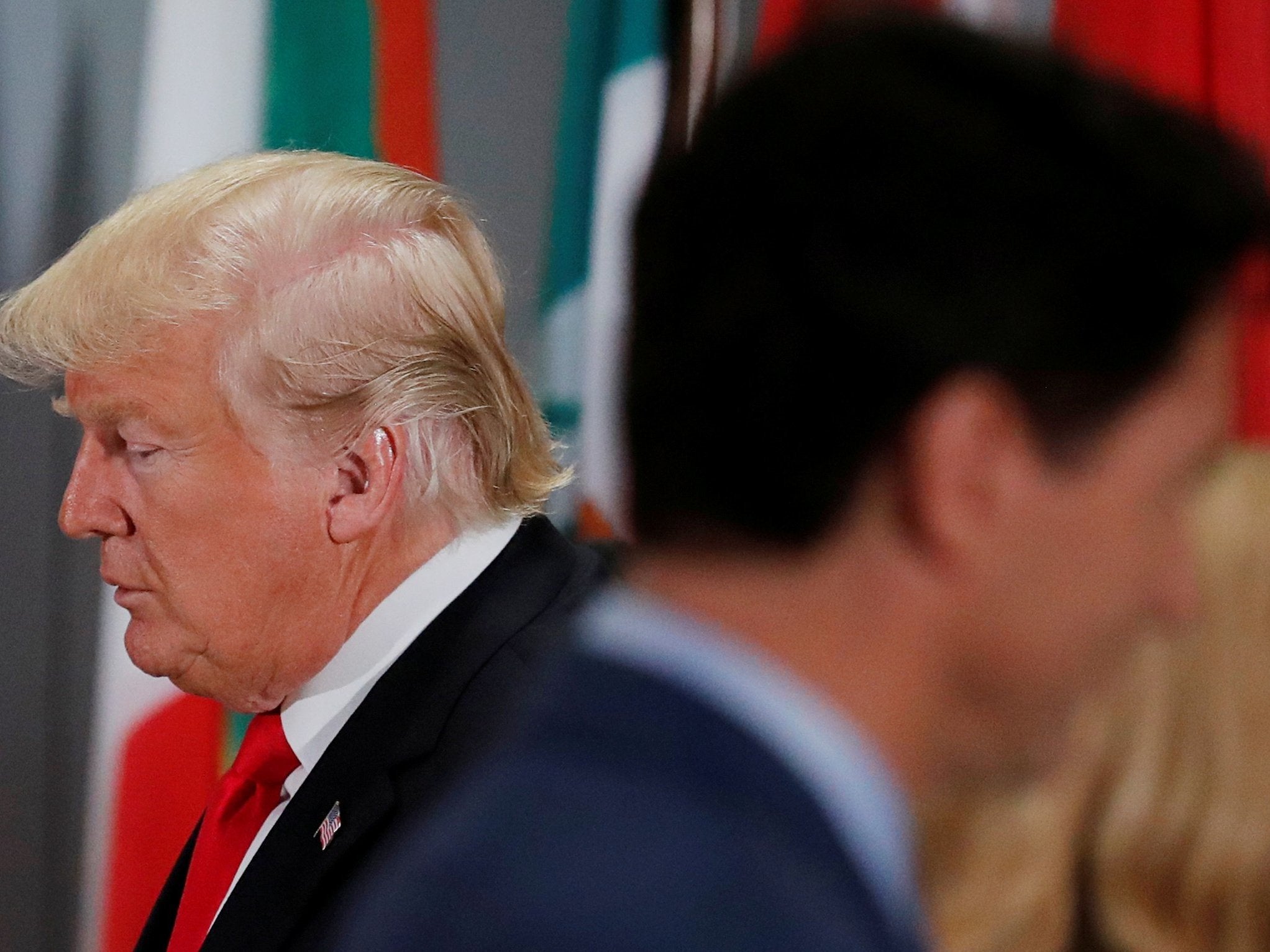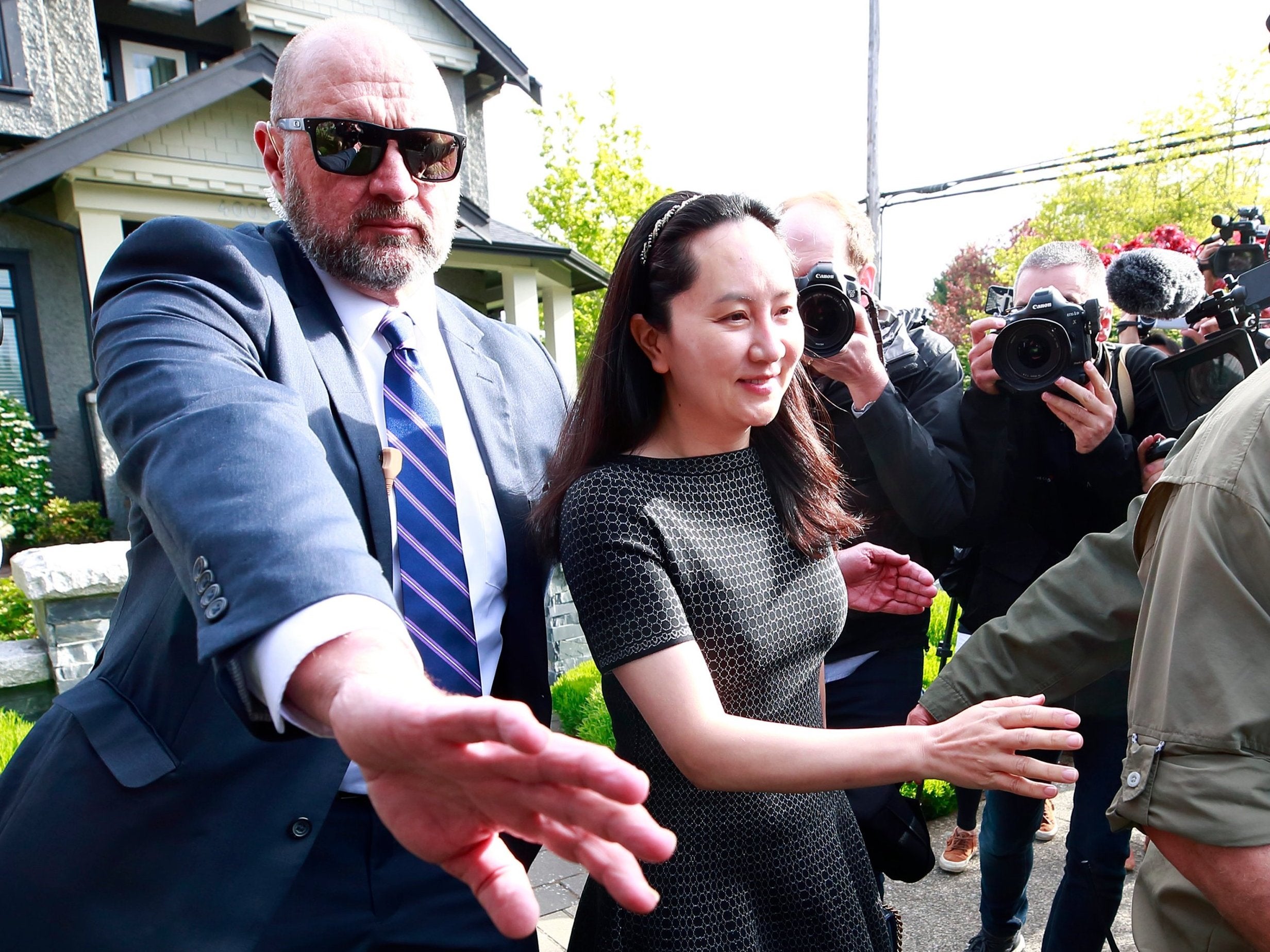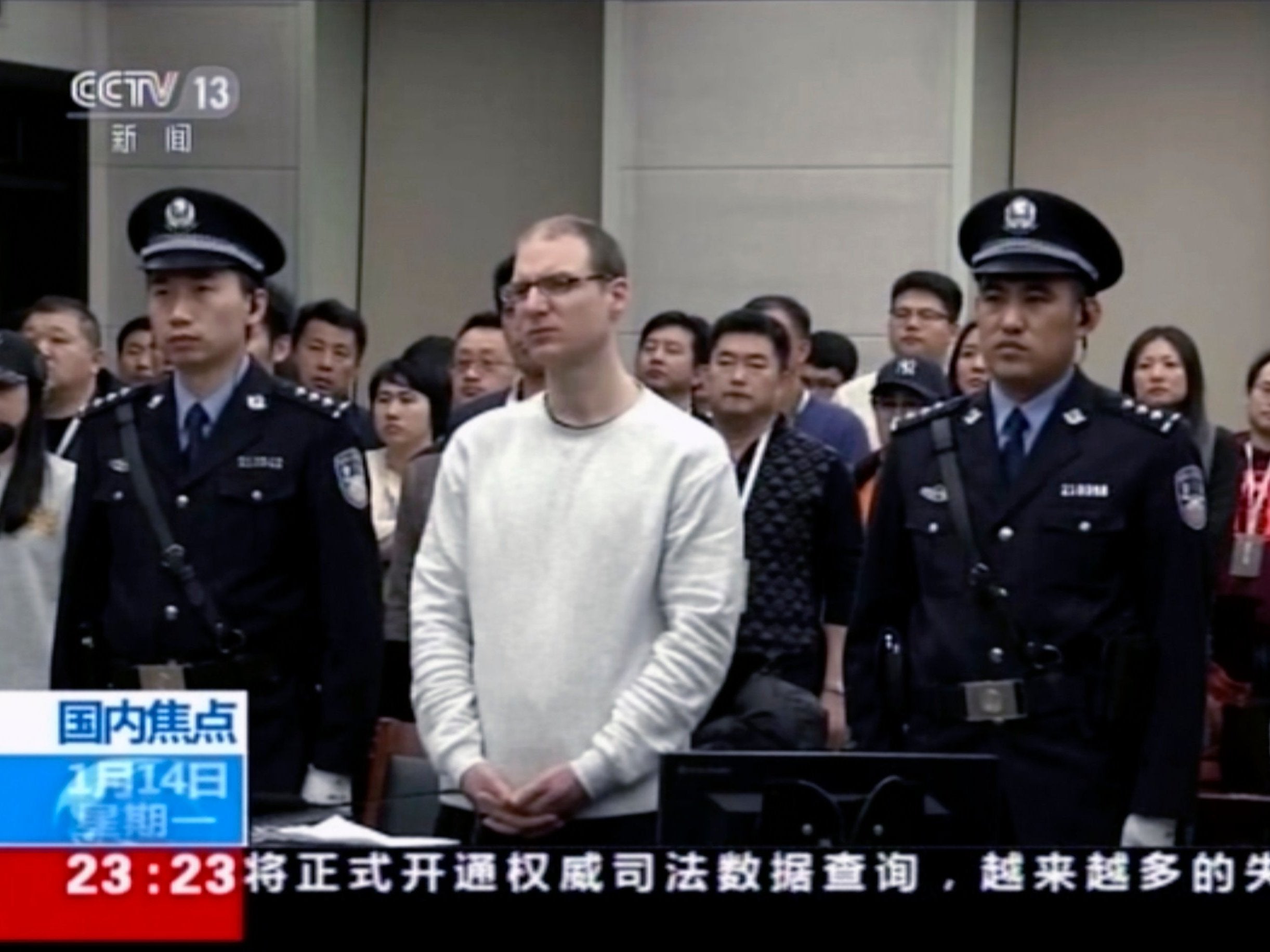Trump offers support to Trudeau over Canadians facing death penalty in China
US president offers 'solid commitment' to northern neighbours over harsh sentences for drug smuggling – despite praising Beijing for exactly that a week earlier

Donald Trump has offered Canada his full support in the government’s attempts to secure the release of two of its citizens facing the death penalty in China – despite telling Beijing he "appreciated" their tough sentences for drug crimes a week earlier.
The Canadian citizens, detained in apparent retaliation after the arrest of a Chinese executive at the request of the US, have been held separately for five months on charges of producing, smuggling and selling drugs.
Justin Trudeau, the Canadian prime minister, spoke with the US president by phone late on Thursday and urged Mr Trump to press for their release.
Two other Canadians are also being held.
A White House statement said the president expressed Washington's "solid commitment to standing by Canada in efforts to secure the fair treatment and release of Canadian citizens currently detained in China".
However at a speech in Atlanta on 29 April, Mr Trump praised China for its policy of executing drug dealers.
“They’re going to charge people with the highest level of crime," he told the audience at the Rx Drug Abuse and Heroin Summit. "And in China, unlike in our country, the highest level of crime is very, very high. It’s the ultimate. You pay the ultimate price. So I appreciate that very much.”

Mr Trump's intervention comes amid an ongoing trade war with the Chinese. American and Chinese negotiators are holding talks in Washington this week aimed at ending a dispute that has disrupted billions of dollars in trade.
Mr Trudeau made a plea for assistance from Canada’s southern neighbour as a former US national security adviser also weighed in on China’s detention of North Americans.
"Our free and open societies are under attack by an authoritarian closed mode," HR McMaster said.
“A model that not only is affecting the Chinese people by extinguishing their rights, their rights to free speech, their rights to privacy but it is also affecting other nations of the world.”
The diplomatic row between Ottawa and Beijing erupted late last year when a top Chinese executive was detained in Vancouver.

On 1 December, Canadian police arrested Huawei’s chief financial officer Meng Wanzhou, who is out on bail while awaiting extradition hearings relating to fraud charges in the US. She is accused of using a subsidiary company to circumvent sanctions against Iran.
Following her arrest, China detained former diplomat Michael Kovrig and entrepreneur Michael Spavor in an apparent attempt to pressure Canada to release her. Neither have been given access to lawyers.
A month later, as the diplomatic row deepened, a Chinese court sentenced Canadian Robert Lloyd Schellenberg to death for drug smuggling.

He had originally been given a 15-year sentence after being found guilty in November, but prosecutors later said the sentence was too lenient.
A fourth Canadian – Fan Wei – was sentenced to death last week for drug trafficking in the southern Chinese province of Guangdong.
He was found guilty of producing and selling methamphetamine and another drug used for weight loss and treating ADHD.
Chrystia Freeland, Canada’s foreign minister, said the sentence was a “cruel and inhumane punishment which should not be used in any country”.
Join our commenting forum
Join thought-provoking conversations, follow other Independent readers and see their replies
Comments
Bookmark popover
Removed from bookmarks